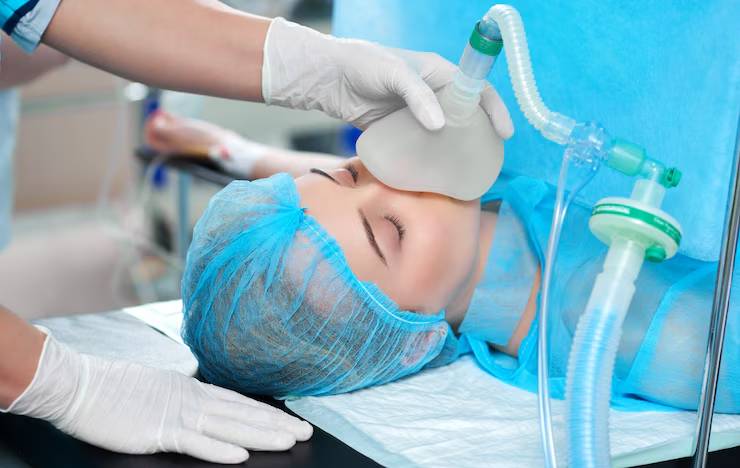Modern hospitals face countless emergencies daily. Patients arrive with heart attacks, severe injuries, and life-threatening illnesses. Behind the scenes, highly trained professionals work tirelessly to save lives. These medical experts specialise in managing the most challenging cases when every second counts.
The critical care specialist stands at the centre of these life-or-death situations. These doctors complete extensive training beyond general medicine. They understand complex organ systems and how they interact during crises. Their expertise covers everything from mechanical ventilation to advanced cardiac support. Perhaps most importantly, they make split-second decisions that can mean the difference between life and death.
The Foundation of Intensive Care
Every medical care center depends on its intensive care capabilities to address critical issues. The ICU represents the most technologically advanced area of any hospital. Monitors beep constantly, displaying vital signs and organ function data. Ventilators breathe for patients who cannot breathe on their own. Sophisticated pumps deliver precise medication doses around the clock.
Critical care specialists oversee this complex environment. They interpret the constant stream of data from multiple monitoring systems. Blood pressure readings, oxygen levels, and heart rhythms all tell a story. These doctors piece together the medical puzzle whilst managing multiple patients simultaneously. Their training allows them to spot subtle changes that others might miss.
The work never stops in intensive care units. Night shifts bring different challenges than day shifts. Emergencies happen at three in the morning just as often as three in the afternoon. These specialists adapt their approach based on available resources and staffing levels. Experience teaches them when to call for additional help and when they can handle situations independently.
Emergency Response Coordination
Medical emergencies require immediate coordination between multiple departments. Critical care specialists often lead these response teams. They communicate with surgeons, anaesthetists, and nursing staff. Clear communication prevents delays that could cost lives. These doctors understand which procedures take priority and how to sequence treatments effectively.
Trauma cases present unique challenges for emergency response. Car accident victims might have multiple injuries affecting different organ systems. Burns require specialised treatment protocols. Head injuries demand careful monitoring of brain pressure. Critical care specialists must evaluate all these factors whilst coordinating with trauma surgeons and other specialists.
Code blue situations test every aspect of any kind of emergency response. When a patient’s heart stops, the critical care team has minutes to restore circulation. They follow established protocols whilst adapting to each patient’s specific circumstances. Years of training prepare them for these high-pressure moments. Team members know their roles without lengthy discussions.
Advanced Life Support Technologies
Technology plays a massive role in modern critical care medicine. Mechanical ventilators now offer dozens of different breathing modes. Each mode serves specific patient needs based on lung function and recovery potential. Critical care specialists must understand the nuances of each setting. They adjust parameters based on blood gas results and patient response.
Dialysis machines filter blood when kidneys fail. These devices require careful monitoring to prevent complications. Fluid removal rates must balance patient needs with cardiovascular stability. Critical care specialists work closely with nephrology teams to optimize treatment plans. They understand how kidney function affects other organ systems.
Cardiac support devices help failing hearts pump blood effectively. These machines can temporarily take over heart function during recovery. The decision to use such devices requires careful consideration of risks and benefits. Critical care specialists evaluate patient prognosis and family wishes. They explain complex treatment options in terms families can understand.
Patient Assessment and Monitoring
Continuous patient assessment forms the backbone of critical care medicine. These specialists examine patients multiple times throughout each shift. They look for subtle changes in mental status, breathing patterns, and circulation. Physical examination skills remain crucial despite advanced monitoring technology. Sometimes the most important clues come from careful observation rather than electronic displays.
Laboratory results provide detailed information about organ function. Blood tests reveal infection markers, kidney function, and liver performance. Critical care specialists interpret these results within the context of each patient’s condition. They understand how medications affect test results. Trending values over time often proves more important than single measurements.
Family communication represents a challenging but essential aspect of patient care. Critical care specialists explain complex medical conditions to worried relatives. They provide realistic prognoses whilst maintaining appropriate hope. These conversations require both medical expertise and emotional intelligence. Families need information to make informed decisions about treatment options.
Multidisciplinary Team Leadership
Critical care functions as the ultimate team sport in medicine. Nurses provide round-the-clock patient monitoring and care. Respiratory therapists manage ventilator settings and breathing treatments. Pharmacists ensure safe medication dosing and drug interactions. Critical care specialists coordinate all these efforts toward common goals.
Daily rounds bring the entire team together to discuss each patient. These meetings review overnight events, current treatments, and planned interventions. Everyone contributes their expertise to the discussion. Nurses often provide the most detailed patient observations. Specialists offer insights about specific organ systems or treatment approaches.
Decision-making in critical care rarely involves a single person. The complexity of these cases requires input from multiple specialists. Cardiologists advise on heart problems. Infectious disease experts guide antibiotic choices. Critical care specialists synthesise all this information into coherent treatment plans. They balance competing priorities and potential complications.
Quality Improvement and Outcomes
Modern critical care emphasises measuring and improving patient outcomes. Specialists track survival rates, infection rates, and length of stay statistics. These metrics help identify areas for improvement. Quality improvement projects focus on evidence-based practices. Research shows which treatments actually improve patient survival.
Infection prevention requires constant vigilance in intensive care units. These environments harbour dangerous bacteria that resist standard antibiotics. Critical care specialists follow strict protocols for hand hygiene and sterile procedures. They balance the need for invasive monitoring with infection risks. Prevention strategies evolve based on the latest research findings.
Cost considerations increasingly influence critical care decisions. These treatments consume significant healthcare resources. Critical care specialists must consider both patient outcomes and resource utilisation. They work with hospital administrators to develop sustainable practices. The goal remains providing excellent care whilst managing costs responsibly.
Training and Professional Development
Becoming a critical care specialist requires years of additional training beyond medical school. Doctors complete residency programmes in internal medicine or emergency medicine first. Critical care fellowship programmes then provide specialised training in intensive care management. These programmes combine clinical experience with research opportunities.
Continuing education keeps critical care specialists current with rapidly evolving practices. Medical knowledge doubles every few years in this field. New medications, devices, and treatment protocols emerge regularly. Specialists attend conferences, read medical journals, and participate in online training programmes. Lifelong learning remains essential for maintaining competence.
Certification processes ensure specialists meet professional standards. Board examinations test both knowledge and practical skills. Recertification requirements maintain ongoing competence throughout careers. These processes protect patients by ensuring specialists stay current with best practices. Professional organisations provide resources and support for ongoing development.
Conclusion
Critical care specialists serve as the backbone of modern emergency medicine. Their expertise transforms medical care centres into places where the most critically ill patients receive life-saving treatments. These professionals combine advanced medical knowledge with split-second decision-making abilities. Their work directly impacts survival rates for the most vulnerable patients.
The future of critical care medicine looks promising as technology continues advancing. New monitoring systems provide even more detailed patient information. Treatment options expand as research reveals better approaches to critical illness. These specialists will continue adapting their practices to incorporate the latest developments.
Take action to learn more about the critical care services available in your area. Understanding these capabilities helps you make informed healthcare decisions for yourself and your family members during medical emergencies.
Featured Image Source: https://img.freepik.com/free-photo/female-patient-undergoing-surgery_7502-8405.jpg







